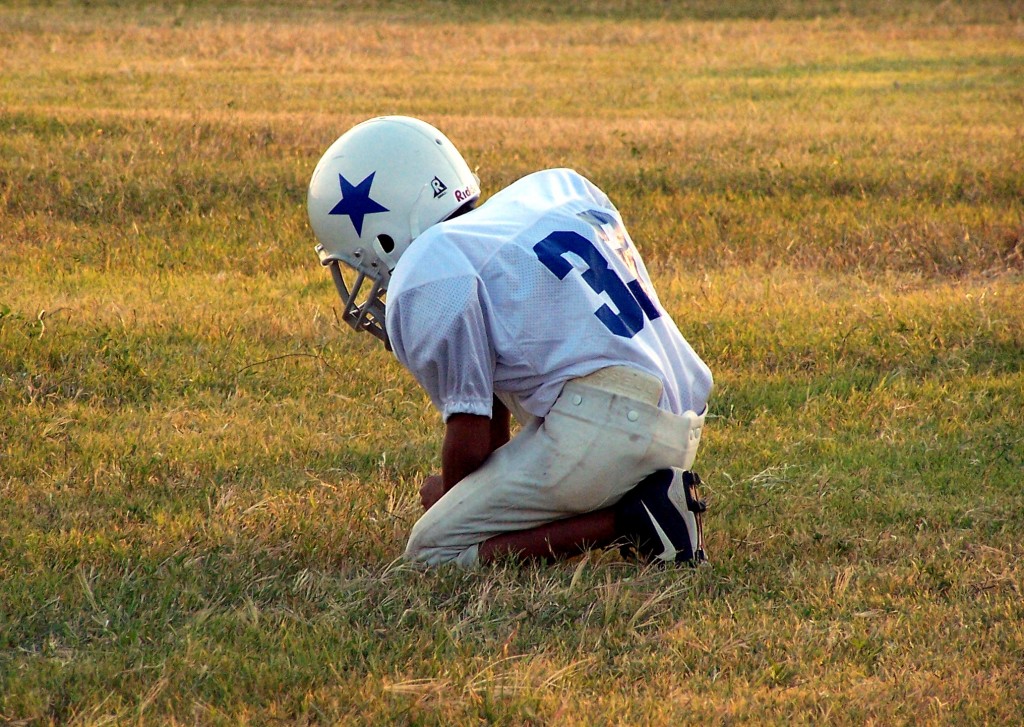Appeals Court Allows Christian School’s Free Speech Lawsuit Over Loudspeaker Prayer to Continue
 ATLANTA, Ga. — The 11th Circuit Court of Appeals in Georgia has allowed a free speech lawsuit filed by a Christian school in Florida to continue after a lower court judge initially dismissed the legal challenge, which centers on the Florida High School Athletic Association’s (FHSAA) prohibition against loudspeaker prayer at football games.
ATLANTA, Ga. — The 11th Circuit Court of Appeals in Georgia has allowed a free speech lawsuit filed by a Christian school in Florida to continue after a lower court judge initially dismissed the legal challenge, which centers on the Florida High School Athletic Association’s (FHSAA) prohibition against loudspeaker prayer at football games.
“The lower court was too quick to pull the trigger insofar as it dismissed the appellants’ free speech and free exercise claims,” wrote judge Stanley Marcus, nominated to the bench by then-President Bill Clinton, on behalf of the three-judge panel. “We cannot say whether these claims will ultimately succeed, but Cambridge Christian has plausibly alleged enough to enter the courtroom and be heard.”
As previously reported, Cambridge Christian School in Tampa has a practice of praying over the loudspeaker at every game, and intended to continue its tradition when it earned a spot at the Class 2A Florida state football championship in 2015. As its opponent, University Christian School, was also a Christian institution, the two decided to lead attendees in joint prayer at the game.
Since the championship — held at Camping World Stadium — was in a large venue, the schools requested permission to use the loudspeaker so the prayer could be heard. But the request was denied due to FHSAA’s belief that the allowance would be illegal.
“Although both schools are private and religious-affiliated institutions, the federal law addresses two pertinent issues that prevent us from granting your request,” wrote Executive Director Roger Dearing. “First is the fact that the facility is a public facility, predominantly paid for with public tax dollars, makes the facility ‘off limits’ under federal guidelines and precedent court cases.”
“Second is the fact that in Florida Statutes, the FHSAA (host and coordinator of the event) is legally a ‘state actor’ we cannot legally permit or grant permission for such an activity,” he said.
Therefore, the schools did not use the loudspeaker at the championship game, but rather only prayed together at the 50-yard line. Other messages that were secular in nature were allowed to be broadcast.
“Because of the size of the stadium, the students, parents, and other Cambridge Christian and University Christian supporters in the stands could not hear the teams’ midfield pre-game prayer,” Cambridge’s legal complaint outlined. “Thus, by denying access to the loudspeaker, the FHSAA denied the students, parents, and fans in attendance the right to participate in the players’ prayer or to otherwise come together in prayer as one Christian community.”
Following the game, the Association issued a press release advising that any future requests to use the loudspeaker would be denied.
In 2016, Cambridge Christian School filed suit.
“The FHSAA’s denial of Cambridge Christian’s request for prayer over the loudspeaker, while allowing for secular messages to be delivered over the loudspeaker and other stadium communications media, constitutes content-based and viewpoint-based discrimination in contravention of the First Amendment of the United States Constitution,” it asserted.
However, the following year, U.S. District Judge Charlene Edwards Honeywell dismissed the school’s legal challenge, ruling that the use of FHSAA’s loudspeaker would be “perceived as state endorsement of Cambridge Christian’s religious message.”
The Association had argued in its motion for dismissal that the loudspeaker was state-run and the law doesn’t require FHSAA to “promote sectarian prayer” through its use. It also noted that leadership did not stop the school from praying during the game but only denied use of the public address system.
“[T]he FHSAA did not prevent or discourage Cambridge Christian or the spectators at the stadium from praying, or from disseminating that prayer to all in attendance,” Honeywell likewise concluded.
“Moreover, even if denial of access to the loudspeaker did burden a religious belief of Cambridge Christian, such a burden did not amount to a substantial one, but simply inconvenienced the belief, because Cambridge Christian was not denied alternate means of engaging in communal prayer.”
On Wednesday, the 11th Circuit Court of Appeals agreed in part and overturned the dismissal in part.
“[W]hile we agree with the district court that the loudspeaker was a nonpublic forum, we conclude that Cambridge Christian has plausibly alleged that it was arbitrarily and haphazardly denied access to the forum in violation of the First Amendment,” Judge Marcus wrote.
“Likewise, we cannot say, again drawing all inferences in favor of the appellant, that in denying communal prayer over the loudspeaker, the FHSAA did not infringe on Cambridge Christian’s free exercise of religion.”
“We do not know whether the course of litigation will establish violations of the First Amendment,” Marcus noted, “but Cambridge Christian has plausibly pled enough in its complaint to get into the courthouse and be heard. Accordingly, we remand these claims to the district court for further proceedings consistent with this opinion.”
First Liberty, the religious liberties organization that represented the school in court, expressed satisfaction that the case will now be permitted to proceed.
“We are grateful to have won this appeal and look forward to presenting our case on behalf of Cambridge Christian School to the district court,” Jeremy Dys, special counsel for litigation and communications, said in a statement. “The First Amendment protects the rights of students and teachers at a private Christian school to pray before a football game, especially when both teams are Christian and have a tradition of prayer before games.”
Become a Christian News Network Supporter…







Comments are closed.